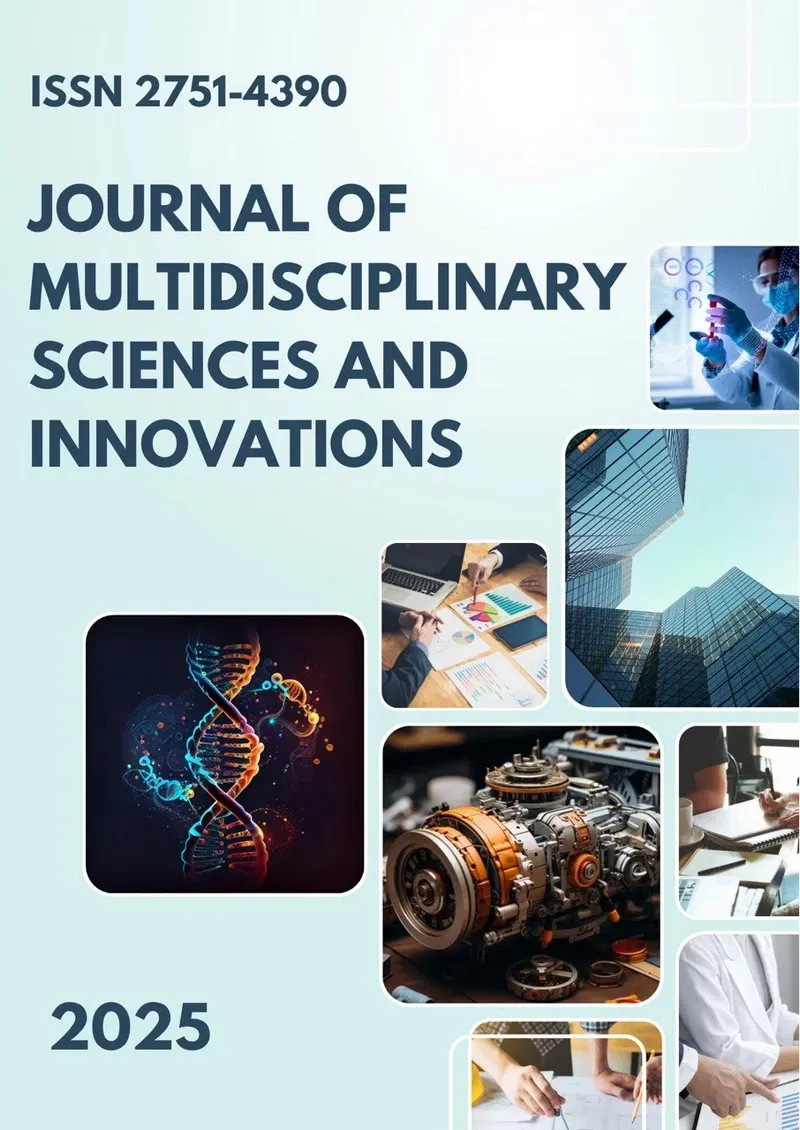
https://ijmri.de/index.php/jmsi
volume 4, issue 2, 2025
242
ALEXANDER FEINBERG TRANSLATIONS AND THEIR INFLUENCE ON UZBEK
LITERATURE
Shukhratbekova Zakhrooyim Khurshidbek kizi
1st year of the Uzbekistan State World Languages University.
Faculty of Foreign Languages and Literature,3rd English faculty
e-mail:shuxratbekovaz@gmail.com.
Annotation:
This article analyzes the translation activities of Alexander Feinberg and its impact
on Uzbek literature. Feinberg's translations served as a cultural bridge between the Russian and
Uzbek literary spaces, while his poetic translations examine the principles of preserving the
national spirit and the means of artistic expression. The article analyzes the linguistic features of
translation, the creative approach of the translator and its influence on Uzbek poetry from a
scientific point of view.
Keywords:
Alexander Feinberg, theory of translation, literary translation, Russian language,
Uzbek literature, poetic translation, intercultural dialogue.
Literary translation is considered one of the most important tools of intercultural
communication. The translator is not only concerned with turning the text from one language to
another, but also maintaining its aesthetic and semantic content, conveying the national spirit, is
considered an important task (Nida, 1964; Venuti, 1995).
Alexander Feinberg is also known as a translator who connected Uzbek and Russian literature
with his work. He has translated Uzbek poetry into Russian and Russian poetry into Uzbek. His
translations are characterized by artistic exaltation and poetic elegance. This article will
scientifically analyze the work of Feinberg as a translator and its impact on the Uzbek literary
process.
1. Alexander Feinberg and the art of translation.
The art of translation is based on linguistic, stylistic and cultural aspects. As Jakobson (1959)
points out, translation is not just a language change, but an
adaptation of cultural codes. Feinberg's translations were important in this respect, and he sought
to preserve the poetic style of the work.
Feinberg mainly made translations in the following directions:
Translation of Uzbek poetry into Russian (Abdulla Oripov, Erkin Vohidov, Chulpan);
Translation of Russian poetry into Uzbek (Yesenin, Blok, Tsvetayeva );
The use of translation techniques (metaphorical and rhythmic harmony) in his work.
2. Linguopoetic properties of Feinberg translations.
The delivery of the poetic spirit in translation is considered one of the most important tasks of

https://ijmri.de/index.php/jmsi
volume 4, issue 2, 2025
243
the translator. Feinberg used the following methods in his translations:
2.1. Equivalence and non-equivalent translation
As Nida (1964) notes, there is semantic equivalence and dynamic equivalence in the translation
process. Feinberg tended towards a more dynamic equivalence method, attempting to adapt the
poetic form while maintaining meaning.
2.2. Maintaining the continuity of poetry in Uzbek and Russian poetry
His translations sought to match the original text in terms of metrics, rhyme, and intonation. For
example, when he translated the poems of Erkin Vohidov into Russian, he tried to maintain a
free rhyming style.
2.3. Semantic adaptation and conveying the national spirit
Conveying the distinctive national emblems of Uzbek poetry in Russian shows Feinberg's skill as
an interpreter. For example, in his translation of Abdullah Oripov's poem “Uzbekim”, he
reworked metaphorical devices to convey national expression in an intelligible state in Russian.
3. Influence of Alexander Feinberg's translations on Uzbek literature.
Feinberg's translations played an important role in strengthening Uzbek and Russian literary ties.
His translations are distinguished by the following aspects:
3.1. Wide promotion of Uzbek literature in Russian
Through his translations, Uzbek poetry has spread more widely to the Russian-speaking literary
environment. This contributed to the international recognition of Uzbek literature.
3.2. Influence of Russian literature and poetry on Uzbek poetry
Through translations from Russian poetry, Uzbek poets were able to learn from Russian poetry.
This gave impetus to the development of Uzbek modern poetry.
3.3. Influence on the formation of the school of interpretation
Feinberg's style influenced the later generation of translators. His translations serve modern
Uzbek translators as a Model Method.
Alexander Feinberg made a strong connection between Uzbek and Russian literature in the field
of translation. His translations are of high importance not only linguistically but also poetically
and culturally. In his translations he adhered to the principles of preserving the poetic structure,
conveying the national spirit, and skillfully using the means of poetic expression. His translations
are an important literary phenomenon that served the recognition of Uzbek poetry in the world
literary space.
Used literature.
1. Jakobson R. On Linguistic Aspects of Translation // Selected Writings. – The Hague: Mouton,
1959.
2. Nida E. Toward a Science of Translating. – Leiden: Brill, 1964
3. Venuti L. The Translator's Invisibility. – London: Routledge, 1995.
4. Feinberg A. Works of translation. - Tashkent: Uzbekistan, 20XX.
5. Karimov N. Theoretical foundations of literary translation. - Tashkent: Science, 2008.
6. Lotman Yu. Culture and text. - Moscow: Nauka, 1992.

https://ijmri.de/index.php/jmsi
volume 4, issue 2, 2025
244
7. Oripov A. Collection of poems. - Tashkent: Gafur Ghulam, 2001.
8. Vahidov E. Selected works. - Tashkent: Sharq, 2010.






